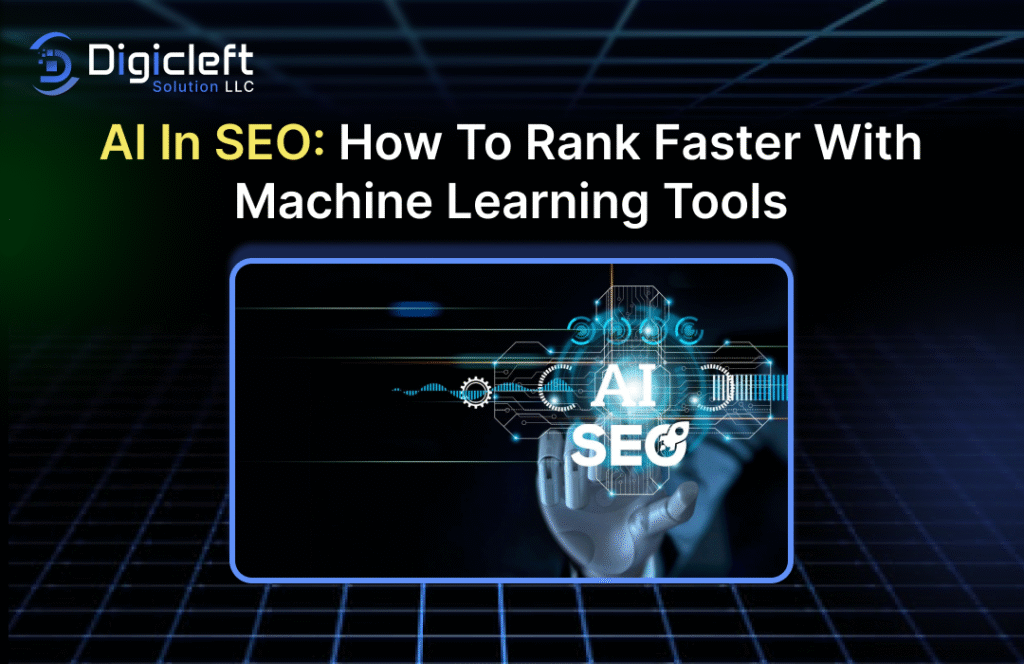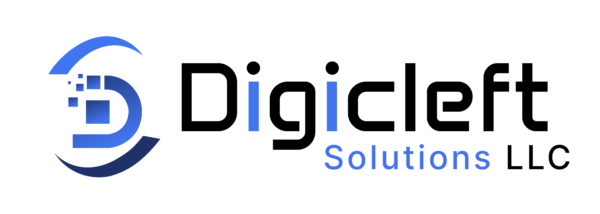
Introduction: The SEO Game Just Changed
Search engine optimization isn’t what it used to be. Remember the days of keyword stuffing, basic backlinking, and fiddling with meta tags? Those tactics don’t cut it anymore.
AI and machine learning are changing how we do SEO. They help with keyword research, content creation, competitor evaluation, and ranking predictions. To stay ahead, it’s time to work smarter, not harder.
Let’s look at how AI is changing SEO. You can use it to rank faster, increase your traffic, and beat the competition.
What is AI in SEO?
AI in SEO means using artificial intelligence and machine learning to improve search engine optimization tasks.
Instead of relying only on human intuition or hours of manual work, AI tools can:
- Predict what content will rank
- Automate keyword research
- Optimize content for user intent
- Monitor SEO performance in real time
Think of AI as a super-smart assistant that never sleeps and constantly learns from data to boost your rankings.

Smarter Keyword Research
Traditional keyword research tools give you raw data. But AI tools like Surfer SEO, SEMRush’s AI Assistant, or ChatGPT plugins go deeper.
They analyze:
- Search intent: Is the user looking for information, making a purchase, or comparing options?
- Top-ranking patterns: What kind of content is dominating the SERPs?
- Content gaps: What’s missing from your competitors’ pages?
These insights help you target high-converting, low-competition keywords that others are missing.
AI doesn’t just tell you which keywords are trending—it tells you why users search for them. Be it directional or educational, or transactional, understanding search intent is now easier than ever. This lets you align your content with what searchers want, increasing dwell time, engagement, and ultimately, your rankings.
AI-Powered Content Creation
This is where things get exciting—and controversial.
AI writing tools like Jasper, Writesonic, and ChatGPT can help you create optimized, human-sounding content at scale. But here’s the key: you must still guide the process.
Use AI to:
- Generate outlines and ideas
- Write SEO-friendly intros or meta descriptions
- Create content drafts for quick scaling
- Optimize for NLP keywords (Google understands context now, not just terms)
That said, don’t publish AI content blindly. Always fact-check, edit for tone, and inject personal experience or brand voice.
AI tools can change your SEO blog post into different formats. These include social media updates, email newsletters, meta descriptions, and audio content. This not only saves time but also expands your content reach. Google loves consistent content distribution across platforms—it signals authority and topical relevance.
Predictive SEO: Forecast What Will Rank
Thanks to machine learning, SEO tools are now able to forecast which content will excel—before publishing.
Platforms like Clearscope, MarketMuse, and Surfer AI use vast datasets to score your content in real-time based on factors like:
- Content depth
- Semantic relevance
- Top SERP competitors
This helps you avoid guesswork and optimize before publishing. That means less trial-and-error, and faster rankings.
Competitor Analyzing at Lightning Speed
AI can crawl and analyze your competitors’ entire SEO strategy in minutes. Tools like SE Ranking, Ahrefs, and SpyFu now use machine learning to reveal:
- What keywords your competitors are ranking for
- Where they’re getting backlinks from
- What topics are driving the most traffic
Instead of spending hours on manual research, AI gives you the insights instantly—so you can adjust your game plan faster.
Voice Search & Semantic Optimization
Voice search is booming, and AI helps you prepare.
Thanks to Natural Language Processing (NLP), Google’s algorithm understands communicative language. That means your SEO strategy needs to move beyond exact-match keywords.
AI tools can help you:
- Optimize for questions and voice queries
- Use schema markup correctly
- Include related keywords and synonyms naturally
Your content should now sound like a helpful conversation, not a keyword-stuffed article from 2010.
AI for Technical SEO and Automation
AI bots are also helping webmasters with technical SEO.
Tools like Screaming Frog with ML plugins, DeepCrawl, and ContentKing use machine learning to monitor:
- Page speed issues
- Broken links or redirects
- Crawl errors
- Structured data problems
Bonus: Some tools can fix basic errors automatically. They can also alert you to sudden traffic drops or suggest improvements—without any effort from you.
How to Get Started with AI in SEO
Here’s a quick action plan:
- Choose the right tools – Start with tools like Surfer SEO, Jasper, and SEMrush with AI features.
- Integrate AI slowly – Don’t try to automate everything on day one. Use AI to assist, not replace.
- Test and track your results. Measure how well you did. Which AI suggestions worked? Which ones did not?
- Stay human – AI is your assistant, not your voice. Always personalize your content.
AI + SEO = Faster Results, Smarter Strategy
AI is not just about shortcuts. Smarter workflows and growth based on data are the focus. The more you use AI, the better you will understand how users behave.
This understanding will make your content better. It will also help your search engine optimization efforts. As a result, you will see faster growth in organic traffic. Remember, Google’s algorithm is always changing, and your strategy should change too.
Final Thoughts
SEO is evolving fast. Machine learning, data-driven insights, and real-time content optimization rewrite the old playbook. To rank faster in today’s hyper-competitive space, AI isn’t optional—it’s essential.
The secret lies in harmonizing intelligent automation with your creative flair. Let AI handle the heavy lifting, and you focus on strategy, storytelling, and connecting with real people.
Welcome to the future of SEO.
FAQs
1. Can AI completely replace human SEO experts?
Not yet. AI is powerful, but human strategy, creativity, and brand voice are still unique. Think of AI as a sidekick, not the superhero.
2. Is using AI content against Google’s guidelines?
Not if used correctly. Google values helpful, original content. You can use AI tools to assist your writing, but make sure the final content is useful, accurate, and human-edited.
3. What are the best AI SEO tools to start with?
Use Surfer SEO for on-page optimization. Use Jasper for AI content creation. Use SEMrush for keyword and competition research. Use MarketMuse for content strategy.
4. Does AI help with local SEO too?
Yes. AI solutions can enhance local listings, create location-targeted content, and evaluate local competitor tactics.
5. How do I future-proof my SEO with AI?
Keep yourself updated with AI trends, test new tools, focus on semantic content, and center your user experience. The human element still matters.


